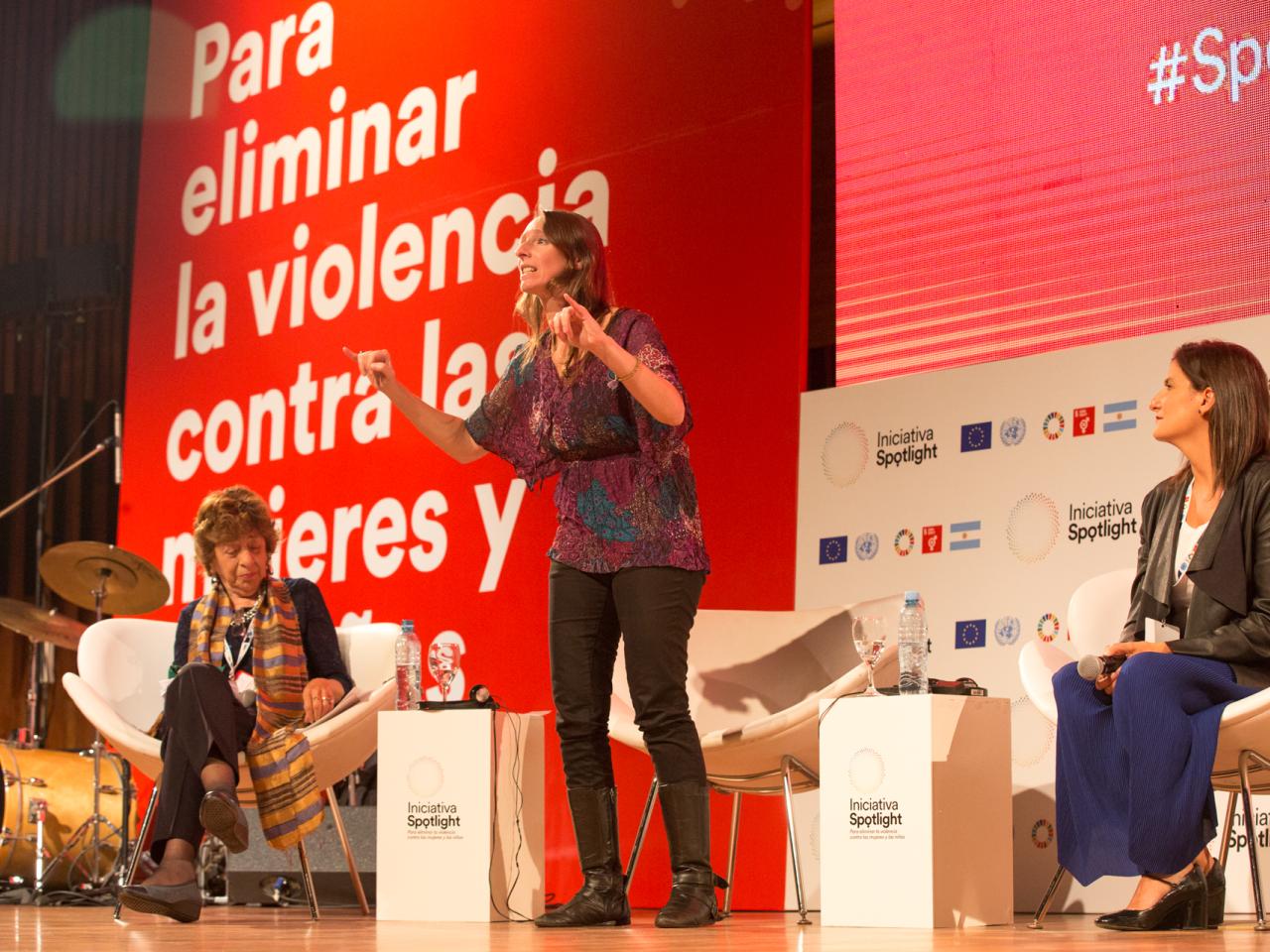'I can’t keep quiet when I see injustice' - an activist explains the challenges faced by women and girls with disabilities
KASESE, Uganda - For years, Angella Muhindo, 60, lived on land that her parents had purchased for the family. When her mother died, the land was left to Ms. Muhindo in the will but that didn’t stop her maternal uncles from trying to take it as their own. Ms. Muhindo knew this wasn’t right — women and girls with disabilities have the same rights to property as everyone else.
Ms. Muhindo had attended Spotlight Initiative-supported training implemented by UN Women and the National Union of Women with Disabilities Uganda (NUWODU) which helped her understand her legal entitlements and advocate to reclaim the land.
"I can buy land, they can buy land. I must have a share in my father’s property even if I have disabilities.” - Angella Muhindo, activist
“I can write, they can write... I can build a house, they can build a house. I can buy land, they can buy land. I must have a share in my father’s property even if I have disabilities,” she says. “The training opened my eyes. I didn’t know where to go for help but now I know where people with disabilities can get different services in our district. I became more aware of our rights and how to stand up for ourselves.”
Today, Ms. Muhindo is a confident advocate who assists other women and girls with disabilities in her community.
Despite the hard work of activists like Ms. Muhindo, many barriers still exist in Uganda and around the world that prevent women and girls with disabilities from achieving their full potential. Women with disabilities are particularly at-risk of sexual and gender-based violence because of social exclusion, limited mobility, lack of support structures, communication barriers and negative social perceptions.
In the lead-up to International Day for Persons With Disabilities on 3 December, Ms. Muhindo explains how the COVID-19 pandemic has impacted on women and girls with disabilities and what can be done to address these challenges.
"Many parents and caretakers still believe people with disabilities don’t need an education. We are often undermined." - Ms. Muhindo
What are some of the main challenges faced by women and girls with disabilities in your community?
The biggest challenge is poverty and lack of school fees. Because of poverty, men take advantage of girls and lure them into sexual encounters with money and gifts. Many parents and caretakers still believe people with disabilities don’t need an education. We are often undermined. In meetings, people ask, ‘Why is she speaking,’ as if we have no right to speak. At home, some girls and women are beaten.
Without money, access to medical services is difficult. In hospitals, there are no maternity beds for people with disabilities, yet the nurses expect mothers to climb onto these beds to give birth. How do you expect women [living with certain physical disabilities] to get onto that bed?
The language barrier is also a challenge for deaf and blind people. We don’t have language interpreters and most people don’t have access to braille.
How has the COVID-19 pandemic affected women with disabilities in your community?
COVID-19 has left many people with disabilities unable to work because of restricted movements and the closure of businesses. Some were not able to seek communication, legal and health services because of lockdown and now with curfew, they are not able to travel for help.
How have these affected you?
As a woman living with disabilities, I am affected too. I sympathize with people who face abuse because they are disabled and often share my resources such as money for transport and food with them. I am now an advocate for the rights of people with disabilities. I am the voice of the voiceless, I can’t keep quiet when I see abuse and injustice.
What needs to be done to address these inequalities?
Government should provide employment opportunities to people with disabilities and ensure equal distribution of resources in all sectors. In schools, special learning equipment should be provided for children who are deaf or blind, and more children with disabilities should be encouraged to attend school at every level.
[We must] support people with disabilities with training and life skills such as carpentry, tailoring and other forms of art so that people can generate their own income and become independent. [We also need] to provide or fund psychosocial and legal programmes for people living with disabilities.
As told to Davinah Nabirye with reporting by Eva Sibanda.

